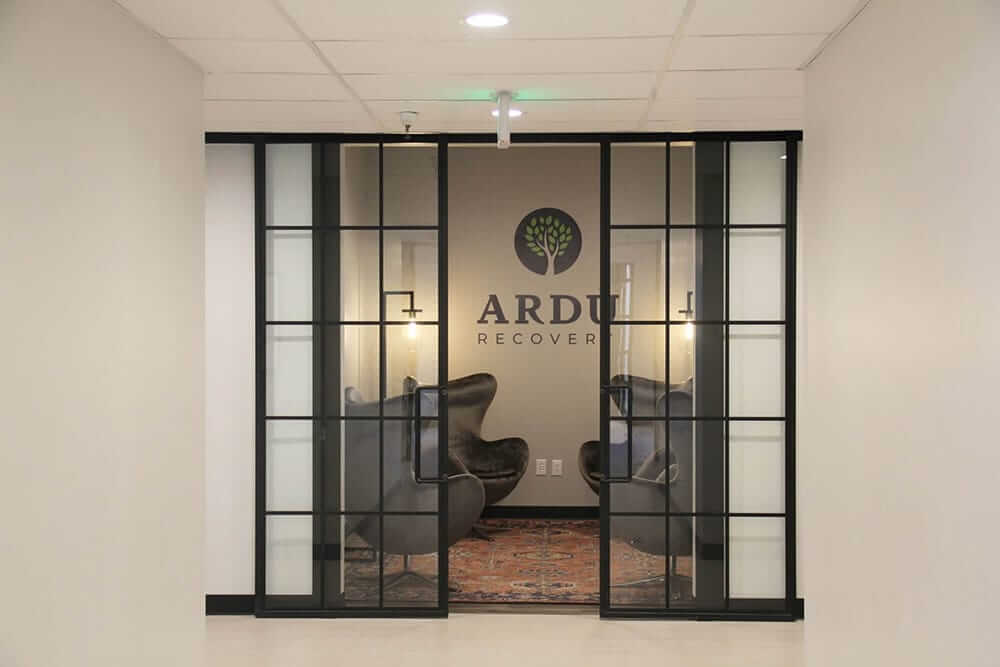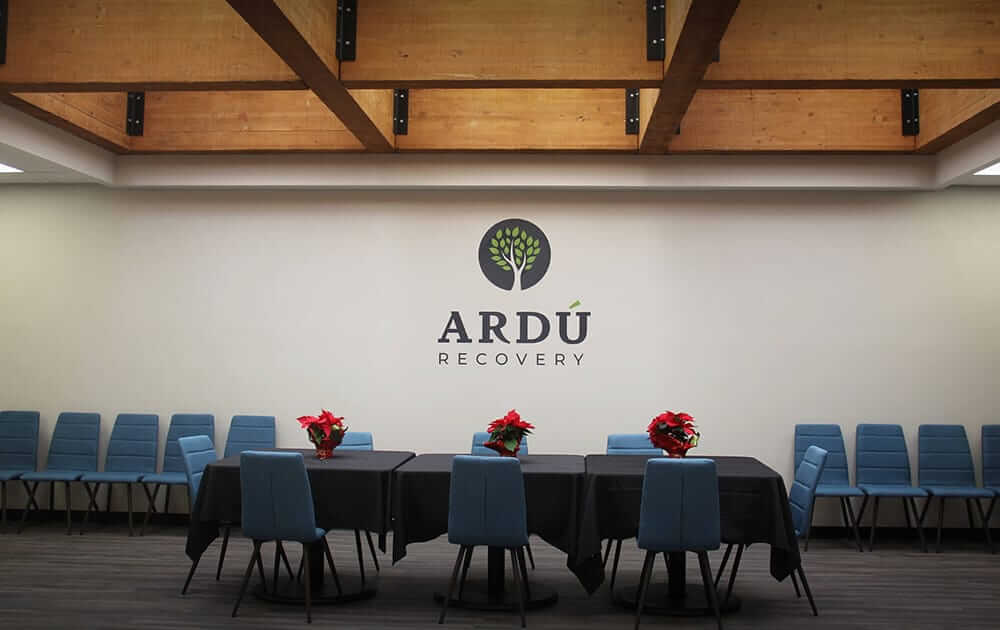Written by Drew Redd. Mina Draskovic, B.Psy., reviewed this content for accuracy.
Valium is a powerful prescription benzodiazepine. It’s among the most commonly prescribed medications for anxiety and muscle spasms, and it’s frequently abused. According to a national survey on Drug Use and Health, approximately 5.4 million Americans over the age of 12 reported misusing benzodiazepines such as Valium in 2018.
Our Valium rehab center offers comprehensive detox programs and round-the-clock care to alleviate uncomfortable withdrawal symptoms.
“The program gives you hope at not only the ability for recovery but I learned so much about how to better my life in all ways. It is a good mix of traditional therapy and treatment combined with holistic healing as well. From admission to my clinical therapy and even the outpatient program, my treatment was done with true care and concern for my well-being, and I was treated like a person who matters.”
You don’t have to go through Valium withdrawal alone. We’re here to help you complete detox and transition into further treatment to overcome your Valium dependence.
Valium is a brand name for the drug diazepam, which belongs to a class of medications called benzodiazepines. Benzodiazepines work by enhancing the effects of GABA, a neurotransmitter in the brain that reduces the excitability of neurons and has calming effects on the nervous system. This results in sedative, hypnotic, anticonvulsant, and muscle relaxant effects.
Valium is prescribed to treat anxiety disorders, alcohol withdrawal, muscle spasms, and more. It is also used as a premedication for certain medical procedures.
Valium has a high potential for addiction and physical dependence, especially if a person is already susceptible to addictive behavior. A study published in the Journal of Clinical Medicine reports that benzodiazepine use disorder affects approximately 0.5–2% of the general population and 10–20% of those prescribed benzodiazepines long-term.
Valium addiction is characterized by an inability to control Valium use despite the harm it causes. People addicted to Valium experience negative effects on their health, relationships, work and school obligations, finances, and general quality of life.
Here’s how to recognize a person addicted to Valium:
Contact Ardu if you or someone you care about is showing these symptoms of drug abuse. We provide the necessary care and support to manage withdrawal symptoms safely and comfortably.
When you stop consuming Valium after prolonged use, you will probably develop Valium withdrawal syndrome—the psychological and physical withdrawal effects that occur when you stop using Valium.
There are two stages of Valium withdrawal syndrome: acute and post-acute.
Intense withdrawal symptoms begin gradually once you stop using, as your body adjusts to the absence of diazepam.
Due to its longer half-life compared to other benzodiazepines, Valium detox often involves a prolonged withdrawal with symptoms that develop slowly. Acute withdrawal symptoms typically start within 2–7 days after the last dose of Valium, peak around 10–14 days, and can last about 2–4 weeks in total.
Let’s examine the withdrawal timeline.
In the initial stages of Valium withdrawal, which spans 2–7 days after the final drug dose, you might encounter relatively mild symptoms:
As Valium leaves your system, these symptoms tend to gradually intensify. Within 3–5 days after Valium use, more severe symptoms may begin to appear.
The peak withdrawal phase typically lasts 10–14 days. This is when the most intense and dangerous withdrawal symptoms are likely to manifest, including:
The peak withdrawal phase is the most challenging, which is why medical supervision is recommended. The psychological and physical effects of Valium withdrawal may continue for weeks or even months.
The post-acute phase commences around weeks 3–4 and can persist for months. While the most severe physical symptoms subside during this phase, psychological Valium withdrawal symptoms may linger.
You might experience:
Some individuals recovering from Valium addiction undergo protracted withdrawal, where acute symptoms resurface or new symptoms emerge later in recovery. Our drug detox experts at Ardu will develop a personalized plan to elevate your chances of achieving successful, enduring recovery.
Valium withdrawal is not usually life-threatening, but severe cases can be hard and dangerous. The symptoms associated with Valium withdrawal are both physically and mentally draining, leading to significant discomfort and distress.
One of the most concerning aspects of Valium withdrawal is the potential for severe depression and severe anxiety. These mental health issues can be so overwhelming that they may lead to risky or self-destructive behaviors, including suicidal thoughts or attempts.
Valium withdrawal can also cause a range of physical symptoms that disrupt a person’s normal functioning. Extreme fatigue, insomnia, and muscle cramps can make it challenging for anyone to carry out their daily responsibilities and further exacerbate the emotional distress a user is already facing.
What makes Valium addiction all the more concerning is the risk of seizures during withdrawal. Abruptly stopping Valium can cause seizures (even in individuals with no prior history of epilepsy). This is why it’s crucial to undergo Valium detox under medical supervision.
In severe cases, Valium withdrawal can lead to a condition called delirium tremens, which can be life-threatening if not treated promptly. If you or someone else is experiencing severe Valium withdrawal symptoms, seek emergency medical attention immediately.
Valium detox will help you stop using Valium with medical support and supervision. Because the risks of severe withdrawal symptoms are high, medical attention during detox is the safest option. At our detox facility, we provide 24/7 monitoring and clinical support to make the process as comfortable and safe as possible.
We offer medical and holistic detox to those struggling with substance abuse.
Medical detox is a cornerstone of addiction treatment, particularly for managing the withdrawal symptoms associated with Valium cessation. Our medical team will gradually taper your Valium dosage while administering medications to ease uncomfortable withdrawal effects.
This controlled detox process is combined with nutritional support and therapeutic methods to help you readjust without the spikes in blood pressure, heart rate, and brain activity that abrupt withdrawal can cause. We monitor your progress 24/7.
Holistic detox addresses the physical, emotional, and spiritual dimensions of Valium dependence. A holistic treatment modality emphasizes natural methods such as nutritional therapy, mindfulness practices, yoga therapy, meditation therapy, and other holistic therapies. These methods, in addition to medical services, promote overall well-being and healing during the detoxification process.
Our holistic detox program is good for people who want to minimize reliance on prescription medication. Throughout this process, we provide emotional support and personalized care tailored to your particular needs, fostering resilience during difficult times.
After a successful Valium detox, our rehabilitation center offers a structured path toward lasting recovery from benzodiazepine addictions.
Our efficient treatment team is dedicated to giving personalized care and support, customizing different forms of treatment to address all levels of addiction. With a focus on your personal needs, our treatment team works together to create a comprehensive treatment plan that may include behavioral therapies, counseling sessions, medication management, and other specialized interventions.
At Ardu, we offer both inpatient and outpatient rehab.
Our residential treatment facilities, also known as inpatient rehab centers, provide a structured and immersive approach to Valium addiction recovery. Here are some main benefits:
While inpatient treatment offers intensive support, it may not be feasible for those with significant work, school, or family commitments. If a full-time stay isn’t possible, our outpatient rehab program for Valium addiction might be a more suitable option.
Our outpatient rehab treatment provides flexibility and convenience, allowing you to receive Valium addiction treatment while maintaining your daily responsibilities. Here’s how it works:
Overcoming Valium addiction takes tremendous courage, dedication, and self-compassion. Our commitment is to offer a comprehensive care continuum that adapts to your needs throughout the recovery journey. From initial detox to ongoing support, our approach to Valium addiction treatment promotes successful and lasting recovery.
Our substance abuse treatment and detox programs create a vital foundation for your recovery, tackling both the physical and mental aspects of Valium dependence. This thorough, multi-faceted approach encompasses:
While detox can be challenging, Ardu Recovery Center is ready to support you at every stage of your journey toward sobriety.








We extend a helping hand to anyone battling Valium or other types of drug or alcohol addiction. Our team of seasoned addiction specialists and healthcare experts will guide you through every step of your recovery. We’re here to help you build a strong foundation for sustained sobriety and minimize the chances of falling back into old patterns.
For a deeper dive into our process, check out our admissions page or get in touch with our admissions team directly.
If you’re ready to start your path to recovery, reach out to Ardu online or give us a call at 801-810-1234.

Drew Redd is the executive director of Ardu Recovery Center and is dedicated to empowering people on their journey to sobriety.
Tapering off Valium should be done under medical supervision. A typical approach involves gradually reducing the dose by 5–10% every 2–4 weeks. The exact schedule depends on your current dose, length of use, and individual factors. Never attempt to taper off Valium without consulting a healthcare professional.
Stopping diazepam (Valium) should always be done under medical guidance. Abrupt cessation can lead to severe withdrawal symptoms. Your doctor will likely recommend a gradual tapering schedule, potentially combined with therapy and other support measures to manage withdrawal symptoms and prevent relapse.
Treatment for benzodiazepine withdrawal syndrome often involves:
It’s not recommended to “flush” diazepam from your system. The safest way to eliminate diazepam is through a gradual, medically supervised tapering process. Attempting to speed up elimination can lead to severe withdrawal symptoms. If you’re concerned about diazepam in your system, consult with a healthcare provider for proper guidance.
Diazepam has a long elimination half-life of about 20–100 hours, meaning it takes the body a considerable time to clear the drug. The active metabolites of diazepam can have even longer half-lives, up to 100 hours. This means the drug and its effects can persist in the body for several days after the last dose.
Flumazenil is the pharmacological reversal agent for Valium (diazepam) and other benzodiazepines. It’s primarily used in emergency overdose situations and not for routine management of Valium use or withdrawal. Flumazenil should only be administered by medical professionals due to the risk of precipitating severe withdrawal symptoms.
Many side effects of diazepam tend to diminish over time as your body adjusts to the medication. However, some side effects may persist. If you’re experiencing troublesome side effects, consult your healthcare provider. They may adjust your dosage or try alternative treatments. Never stop taking diazepam abruptly without medical guidance.
The effects of a single dose of diazepam typically last 4–6 hours, but the drug remains in your system much longer due to its long half-life. It will take several days for diazepam to be completely eliminated from your body. The duration depends on dosage, frequency of use, metabolism, and individual physiology.
Sandra Sunjic & John Howard. (1996) “Non injectables”: Methadone syrup and benzodiazepine injection by methadone-maintained clients. Drug and Alcohol Review 15:3, pages 245-250.https://www.tandfonline.com/doi/citedby/10.3109/10826088709027476?scroll=top&needAccess=true
Herzberg, D. L. “The Pill You Love Can Turn on You”: Feminism, Tranquilizers, and the Valium Panic of the 1970s. American Quarterly, 58(1), 79-103. https://doi.org/10.1353/aq.2006.0026
Thomas Hillemacher & Helge Frieling. (2019) Pharmacotherapeutic options for co-morbid depression and alcohol dependence. Expert Opinion on Pharmacotherapy 20:5, pages 547-569. https://www.tandfonline.com/doi/citedby/10.2147/NDT.S164307?scroll=top&needAccess=true
Can meditation therapy help with my addiction?